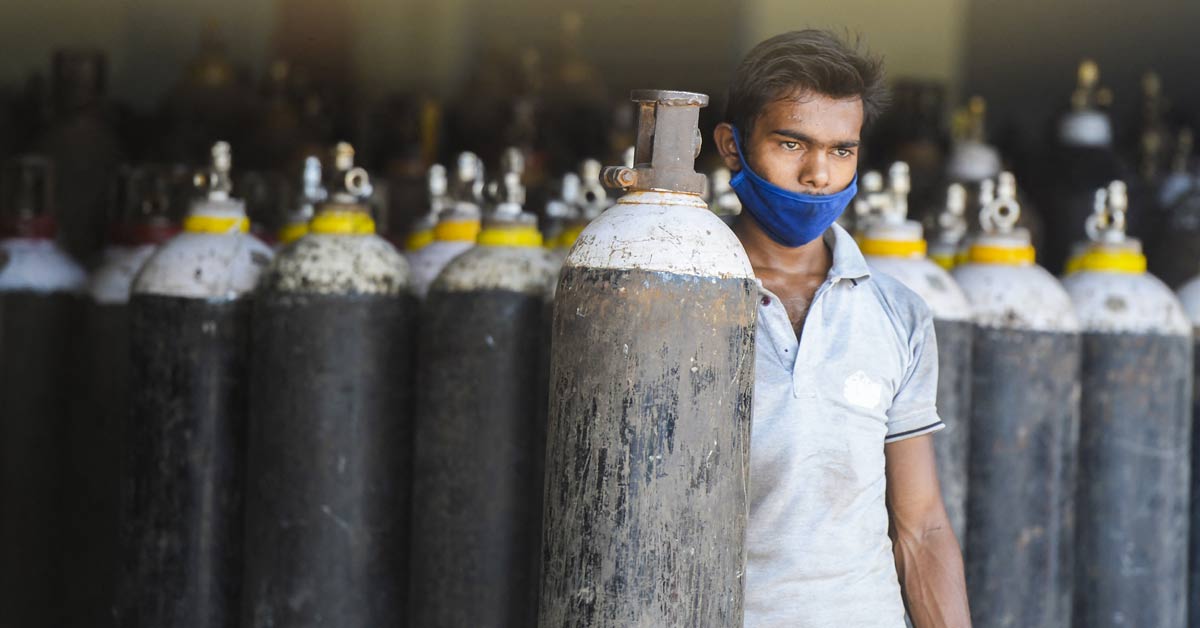Seema Devgan has all but abandoned her day job, as she and a loose collection of overseas volunteers scramble to locate desperately needed supplies for COVID-19 stricken family, friends and strangers in India.
From her apartment in Singapore, Devgan spends hours each day fielding frantic appeals for help on WhatsApp, phoning suppliers and scouting for desperately needed drugs and oxygen.
"It's so difficult," the 47-year-old said, briefly struggling to hold back tears in the face of the sheer enormity of the task. "We are going to lose so many people."
India's global diaspora has a long record of mobilising during times of crisis.
Temples, mosques, gurdwaras and churches; regional and business associations; family groups and informal networks – they all spring into action when a typhoon or flood strikes.
But few disasters have been quite so testing as the current coronavirus outbreak engulfing the nation.
No matter how much money is raised, empty drug store shelves can't be magically refilled. Oxygen generators and concentrators have to be located, ordered and shipped before they can start saving lives. A shattered healthcare system cannot be rebuilt overnight.
"This is an unprecedented kind of a situation," lamented Devgan, a Dutch national and entrepreneur who has lived in Singapore for the past two years.
"It's not those kinds of campaigns where you can just contribute and somebody on the ground will take care of it."
'I Feel Impotent'
Simran Sharma, a 24-year-old graduate student at Tufts University in Boston who is currently in the midst of finals, described the hopelessness many have felt as messages pour into family WhatsApp groups about friends and loved ones laid low.
"This crisis is just insane," she said by phone, detailing how her father's close friend recently died.
"His wife couldn't even attend his cremation because she is also down with COVID," she added.
Sharma's family are in Chandigarh, a city hit hard by infections.
"I feel impotent right now. I can't do anything about it," she said, adding she was also angry.
"We had time to prepare for a second wave but the government did not do anything and now we can see the repercussions."
Judy Naresh, who runs Ask Abu Dhabi, a 15,000-strong Facebook community forum for women from the city's Indian community, said she has been inundated with requests for help.
"Many of our members have lost their parents and other family," Naresh, from Mumbai said.
"Some are battling it out in hospitals and are in want of medicines and oxygen. I am afraid to open my WhatsApp because I feel helpless."
She said her group was coordinating help and arranging injections of remdesivir, widely used in India in the treatment of COVID.
Last week the cost of a shot – usually U$12 – was US$120. Two days ago, it was US$600. Now her group simply can't find any.
Battles Won
But there are successes that make the toil worth it. Battles are won, aid is getting through.
Devgan's WhatsApp volunteer group has grown to some 257 numbers, mostly Indians in Singapore, who have become inadvertent experts at sourcing supplies.
They have raised SGD$100,000 (US$75,000) and sent at least 60 oxygen concentrators to India. Another 200 machines have been ordered, mostly from China.
With the help of an NGO in Delhi they have built up a network to link people with plasma donors, remdesivir, food, COVID-19 tests, hospital beds, doctors and ambulances.
Tarun Patel, a volunteer and one of the organisers of the relief fund at London's Neasden Temple, said their network has swung into action.
"In life, you have two choices: either sit down and do nothing, or roll up your sleeves and do what you can," he said.
One of Britain's largest and wealthiest Hindu temples, Neasden set up a 500-bed relief centre in Atladra, Gujarat, in partnership with the local government and a hospital.
Patel said it is "kitted out", including oxygen supplies, but the current outbreak has quickly filled up most of the beds with coronavirus patients.
"It does not discriminate against age, class or caste," he said. "We cannot keep up. It is really sad."
But members of the diaspora know they must do what they can, no matter how insurmountable the odds may seem.
"If it can save one person's life, that's a job well done," he said.
The other day, he recalled, a young boy donated his 50 pence (62 cents) pocket money to the cause.
"That is the humanity in people, it is really touching." – AFP
Related Articles:
